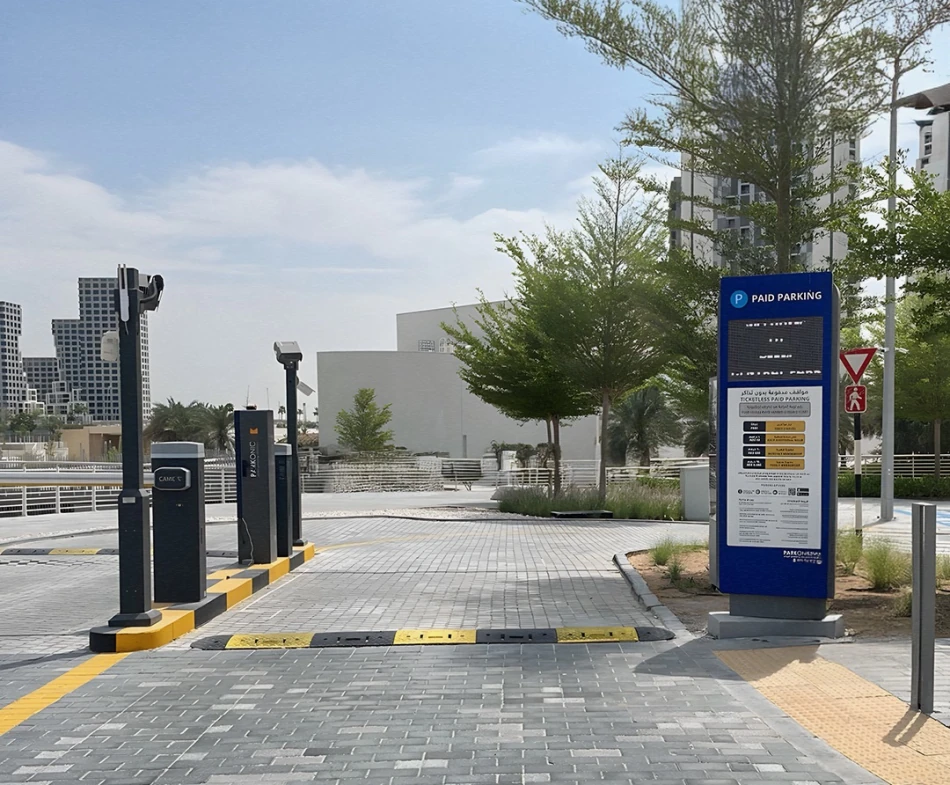
إطلاق أول حل ذكي بالكامل لمواقف السيارات بالذكاء الاصطناعي في المنطقة عبر مجمعات دبي المميزة
Dubai Launches Region's First Fully AI-Powered Smart Parking System Across 36,000 Spaces
Dubai is positioning itself as the global leader in smart city infrastructure with the launch of the Middle East's first completely automated parking system. The groundbreaking partnership between Parkonic, Salik, and Dubai Holding will deploy AI-driven, contactless parking across major Dubai complexes, covering over 36,000 parking spaces and eliminating the need for tickets, barriers, or human intervention.
A Ticketless, Barrierless Future
The new system represents a quantum leap beyond traditional parking solutions. Built on advanced artificial intelligence and seamlessly integrated with Salik's payment infrastructure, drivers can enter and exit parking facilities without any manual interaction. The technology automatically detects vehicles, calculates parking duration, and processes payments instantaneously through existing Salik accounts.
This integration eliminates common pain points like overstay fines and payment delays while creating a unified mobility ecosystem across Dubai. For residents and visitors, the experience becomes frictionless—park, shop, leave, with everything handled invisibly in the background.
Strategic Alignment with Dubai's 2030 Vision
The partnership directly supports Dubai's Smart City 2030 strategy and future mobility roadmap. By removing friction from urban parking, the system addresses multiple city-level challenges simultaneously: reducing traffic congestion as drivers spend less time searching for spaces, cutting carbon emissions through optimized vehicle flow, and advancing Dubai's net-zero emissions goals.
Preparing for Autonomous Vehicles
Parkonic CEO Emad Alameddine emphasized that this system extends far beyond current parking management. The AI-powered infrastructure is being designed with autonomous vehicles in mind, creating the foundation for a fully connected transportation ecosystem. When self-driving cars become mainstream, Dubai's parking network will already be equipped to handle them seamlessly.
Global Context and Competitive Positioning
While cities like Singapore and parts of California have experimented with smart parking pilot programs, Dubai's approach is notably comprehensive. The 36,000-space deployment rivals the scale of major metropolitan parking systems globally, but with significantly more advanced technology integration.
This positions Dubai ahead of regional competitors like Saudi Arabia's NEOM project, which remains largely conceptual, and gives the emirate a tangible advantage in attracting tech-forward businesses and residents. The multilingual interface and tourist-friendly design also support Dubai's broader economic strategy of remaining a global hub for business and tourism.
Market and Investment Implications
For investors and urban planners worldwide, Dubai's smart parking initiative demonstrates the viability of large-scale AI infrastructure deployment. The partnership model—combining a local tech innovator (Parkonic), government infrastructure (Salik), and strategic investment (Dubai Holding)—could become a template for other smart city projects globally.
The system's success will likely influence parking technology adoption across the Gulf region and potentially attract international partnerships for similar deployments. Companies involved in AI, urban mobility, and payment processing should watch this implementation closely as a proof-of-concept for next-generation city infrastructure.
Beyond Parking: Building Connected Urban Systems
The true significance lies not in the parking technology itself, but in Dubai's approach to integrated urban systems. By connecting parking, payments, and traffic management through a single AI-powered platform, the emirate is creating the building blocks for comprehensive smart city operations.
This foundation could eventually expand to include dynamic pricing based on demand, predictive parking availability, integration with public transportation systems, and real-time urban planning adjustments. Dubai is essentially beta-testing the connected city of the future, with parking as the entry point.
Most Viewed News

 Sara Khaled
Sara Khaled






